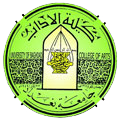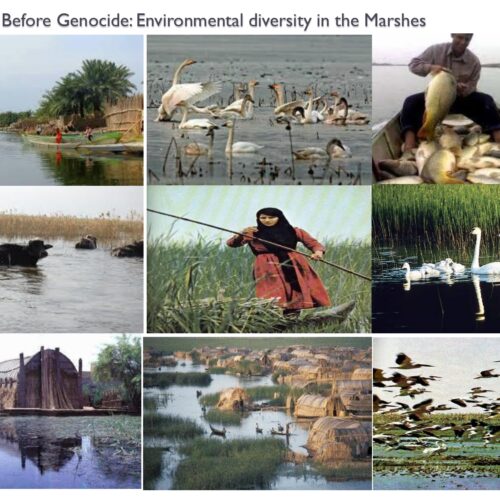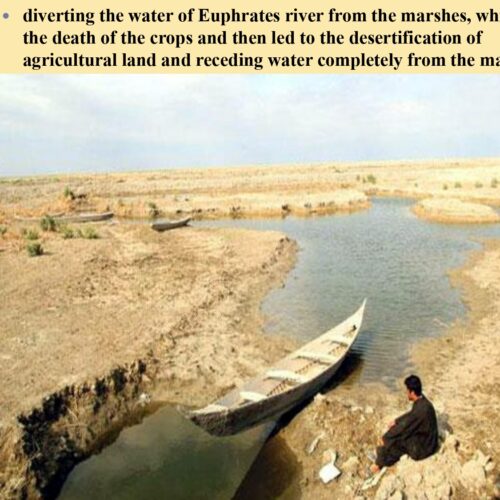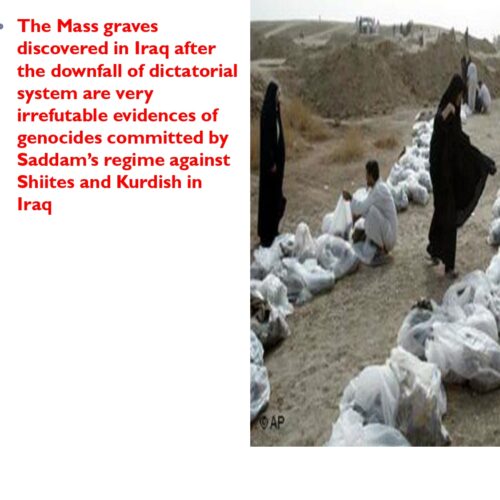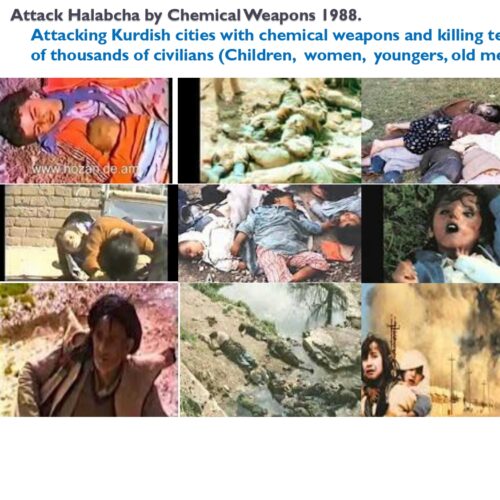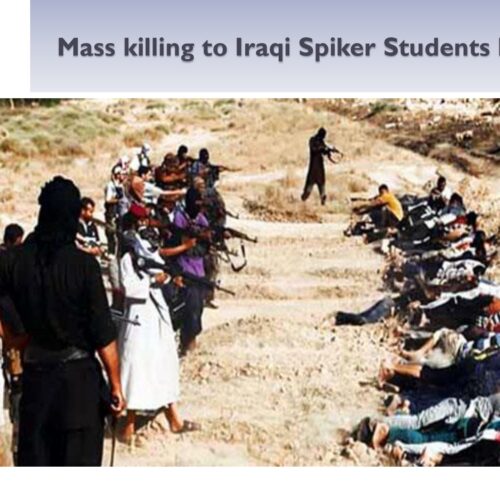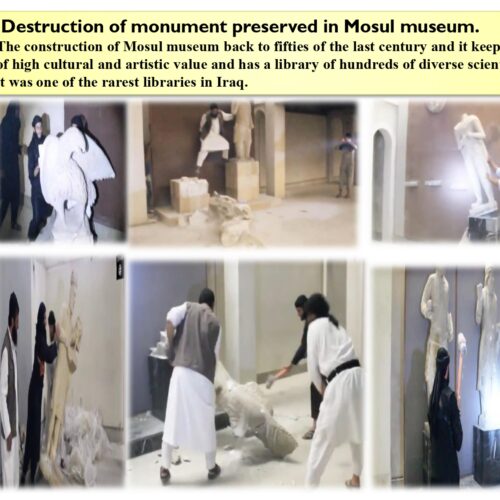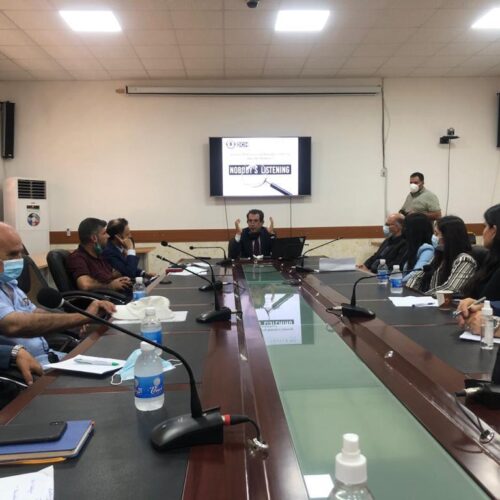
LE PAYSAGE DU GÉNOCIDE EN IRAK :SES RÉPERCUSSIONS POLITIQUES ET SOCIALES
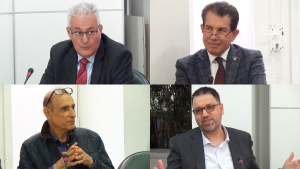
For more details
ــــــــــــــــــــــــــــــــــــــــــــــــــــــــــــــــــــــــــــــــــــــــــــــــــــــــــــــــــــــــــــــــــــــــــــــــــــــــ
INVITATION COLLOQUE
« Le paysage du génocide en Irak : ses répercussions politiques et sociales ».
Le Conseil scientifique de l’Académie de Géopolitique de Paris a le plaisir d’annoncer l’organisation d’une table ronde internationale intitulée
« Le paysage du génocide en Irak : ses répercussions politiques et sociales ».
Cet événement se tiendra le lundi 8 septembre 2025, de 14h30 à 17h00, au siège de l’Académie, situé au 5, rue Conté, dans le 3ᵉ arrondissement de Paris.
Cette rencontre réunira des chercheurs, des experts, des universitaires ainsi que des responsables institutionnels, afin de débattre des conséquences profondes qu’ont eues les génocides sur la société irakienne et sur l’équilibre politique et régional du pays.
L’objectif de cette table ronde est de créer un espace de réflexion et de dialogue autour de questions essentielles :
la mémoire collective et sa transmission ;
les défis liés à la justice transitionnelle et aux mécanismes de réparation ;
les perspectives de reconstruction politique et sociale de l’Irak.
Les échanges mettront également en lumière les répercussions de ces tragédies sur la stabilité régionale et internationale, en soulignant l’importance d’une approche multidisciplinaire et comparative pour mieux comprendre les enjeux actuels.
Intervenants :
Dr. Ali RASTBEEN
Président de l’Académie de Géopolitique de Paris
« Irak : entre fractures et réconciliation »
Pr. Dr. Salah Al JABRI
Titulaire de la Chaire UNESCO d’études sur la prévention du génocide dans le monde islamique,
Professeur de philosophie, Université de Bagdad
« Le paysage du génocide en Irak : ses répercussions politiques et sociales »
Dr. Mohammed AL KARAISHI
Université de Koufa (Irak)
« Le rôle du dialogue interreligieux et de la mémoire dans la paix sociale : l’exemple irakien »
Dr. Ali AL YAQOOBI
Professeur à la Faculté de droit, Université Al-Nahrain (Bagdad – Irak)
« Les efforts internationaux pour la protection des minorités en Irak : l’expérience UNITAD comme modèle »
Compte tenu du nombre limité de places en présentiel, il est demandé aux personnes souhaitant participer de s’inscrire au préalable en remplissant le bulletin disponible en ligne à l’adresse suivante :
https://academiedegeopolitiquedeparis.com/formulaire123/
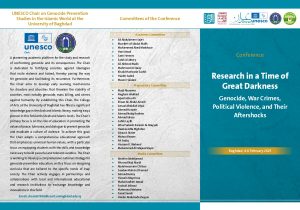
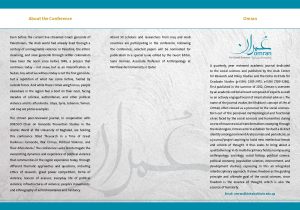
The UNESCO Chair for Genocide Prevention Studies in the Islamic World at the College of Arts – University of Baghdad, in collaboration with Omran Journal at the Arab Center for Research and Policy Studies, will hold an international conference entitled: Research in Dark Times: Genocide, War Crimes, Political Violence and Their Implications… on February 4, 5, 6, 2025 at the University of Baghdad – Al-Jadriya – Al-Hakim Hall.
Nobody’s Listening and Yazda event at the American University of Baghdad (AUIB)
Date: September 25, 2024
Time: 02:00 to 03:45 pm
Place: The American Space, AUIB
Remarks on the role of higher education in truth-telling and prevention of atrocities
Yazda: Welcoming
02:00 – 02:15
- Dr Rick Roberts Dean of the College of International Studies and Director of the American Space, American University in Baghdad: Speaking about the role of technology and VR in educating people about genocide and genocide prevention.
02:15– 02:30
- Salah al-Jabri, UNESCO Chair on Genocide Studies in the Islamic World: The role of technology in genocide studies and memorialization highlighting historic atrocities in Iraq, namely the Yazidi Genocide, Camp Speicher, Anfal Campaign and the atrocities against the Marsh Arabs.
02:30 – 02:45
- A representative from the Ministry of Education: To speak about the work of the Ministry of Education in raising awareness on ISL crimes, and the possibility of collaborating to integrate the VRs into the curriculum.
02:45 – 3:00
- Q&A – take questions from the audience.
Remarks on the need for a transitional justice process in Iraq
3:00 – 3:15
- Natia Navrouzov, Yazda Executive Director: Present Yazda’s work on justice and the necessity to approach the Yazidi genocide through the lens of transitional justice, especially to address the root causes of the genocide.
03:15 – 03:20
- Shireen Khero, Yazidi Survivors Network member and an advocate for the Yazidi survivors’ rights: Shares her experiences as an advocate for transitional justice in Iraq and the impact of the VR for advocacy from a survivor’s perspective.
03:20 – 03:45
- Q&A: Take questions from the audience and closing of the conference
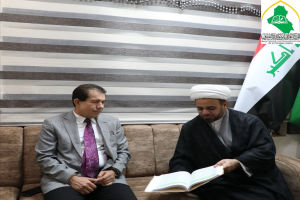
The Director of the UNESCO Chair for Genocide Prevention Studies at the University of Baghdad visited the Iraqi Center for Documenting Extremism Crimes at the Al-Abbas’s Holy Shrine. The two sides discussed ways to enhance cooperation in the field of combating extremism, preventing genocide, and promoting peace, tolerance, and coexistence among sects, religions, doctrines, and ethnicities in Iraqi society. The Director of the UNESCO Chair stressed the importance of primary and university education in addressing extremism and genocide, teaching peacebuilding and coexistence, and the importance of developing appropriate educational curricula for this purpose. The two parties discussed the importance of the Iraqi Center for Combating Extremism’s participation in the upcoming international conference of the UNESCO Chair entitled “Memory of Pain in Iraq” documentation, geography, social, interpretive, philosophical, and economic dimensions. They agreed to cooperate jointly in holding training workshops, seminars, and dialogue sessions on peacebuilding and addressing extremism and genocide in the near future.
